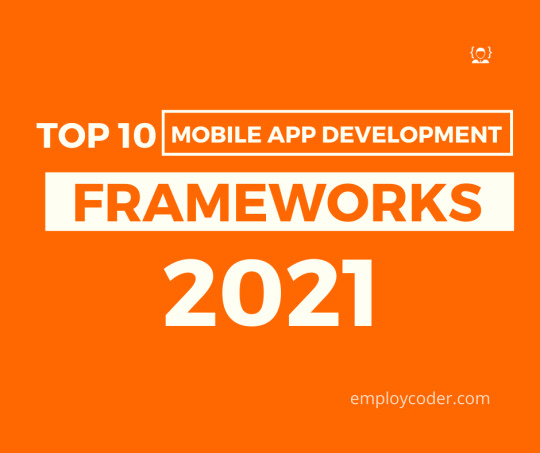#Mobileappframeworks
Explore tagged Tumblr posts
Text
The Developer's Toolkit: Essential Tools for Web and Mobile App Development

In today's fast-paced digital landscape, web and mobile app development is at the heart of innovation and entrepreneurship. Whether you’re an experienced coder or just starting your journey in development, having the right tools in your arsenal can make all the difference. With the correct set of development tools, you can increase productivity, ensure smoother project management, and even make the coding process more enjoyable.
The Developer's Toolkit: Essential Tools for Web and Mobile App Development is designed to help developers stay ahead of the curve by leveraging the latest and most efficient tools. As the development ecosystem evolves rapidly, selecting the right tools can seem overwhelming, but this guide simplifies the process by highlighting some of the essential software, platforms, and frameworks that make the job easier.
Why Every Developer Needs a Comprehensive Toolkit
The world of app development is complex. Developers must manage everything from front-end design to back-end functionality while ensuring that their applications perform well across different platforms. This demands tools that can not only streamline coding but also provide insights into performance, user experience, and debugging.
In this article, we will explore various tools that cater to different aspects of web and mobile app development, including text editors, version control systems, testing frameworks, collaboration platforms, and more.
Essential Tools for Web and Mobile App Development
The right development tools ensure that every phase, from ideation to deployment, runs smoothly. With that in mind, let’s dive into some of the most critical tools that every web and mobile app developer should have in their toolkit.
Text Editors and Integrated Development Environments (IDEs)
Code efficiency begins with a high-quality text editor or IDE. These platforms are the backbone of the coding process, providing developers with the environment needed to write, debug, and run their code.
Visual Studio Code: Loved by web and mobile developers alike, VS Code is lightweight yet powerful. With an extensive range of extensions, it supports virtually every programming language and integrates with multiple development tools.
Sublime Text: Another popular choice, Sublime Text is known for its speed and simplicity. Its clean interface allows for quick edits and is ideal for handling large codebases.
Android Studio: A robust IDE specifically designed for Android app development. It comes with a range of features like a code editor, an emulator, and integrated testing tools.
Xcode: Apple's dedicated IDE for iOS and macOS app development. Xcode is essential for creating native apps for the Apple ecosystem, offering integrated support for Swift and Objective-C languages.
Version Control Systems
Keeping track of changes made to your code and collaborating with other developers is essential in app development, which is why version control systems are crucial tools.
Git: The de facto standard for version control, Git is a must-have for any developer. It allows teams to collaborate on projects while maintaining a complete history of changes made to the code.
GitHub: As the most popular platform for hosting Git repositories, GitHub provides a collaborative space where developers can share, review, and merge code changes with ease.
GitLab: Another robust platform for hosting Git repositories, GitLab offers features like continuous integration and deployment pipelines, making it a favorite among enterprise developers.
Frameworks and Libraries for Web Development
When it comes to web development, frameworks and libraries simplify the process, allowing developers to avoid reinventing the wheel for common tasks like UI elements, routing, and data handling.
React: Created by Facebook, React is one of the most popular libraries for building user interfaces. Its component-based architecture makes it easy to build scalable and dynamic web applications.
Vue.js: A lightweight alternative to React, Vue.js is perfect for developers who want flexibility without the overhead of more complex frameworks.
Angular: Developed by Google, Angular is a full-fledged web development framework that offers two-way data binding, dependency injection, and modular components for building single-page applications.
Bootstrap: For responsive design and quick prototyping, Bootstrap provides pre-built components like forms, buttons, and navigation bars, ensuring your web apps look good across devices.
Frameworks and SDKs for Mobile App Development
Mobile app development requires specialized frameworks and software development kits (SDKs) to ensure optimal performance across different devices and operating systems.
Flutter: Google's open-source SDK for building natively compiled apps for mobile, web, and desktop from a single codebase. Flutter uses Dart as its programming language and offers a rich set of pre-designed widgets.
React Native: If you’re familiar with React for web development, React Native is an excellent choice for building mobile apps using JavaScript. It allows developers to use a single codebase for both iOS and Android apps.
Swift: Apple's native programming language for iOS development, Swift provides powerful performance and security while maintaining a user-friendly syntax.
Kotlin: As Google's preferred language for Android development, Kotlin offers a modern alternative to Java, with improved safety features and seamless integration into Android Studio.
APIs and Backend Tools
No web or mobile app is complete without a strong backend to handle data management, authentication, and server-side logic. These tools provide robust solutions for backend development.
Node.js: A server-side platform built on Chrome's V8 JavaScript engine, Node.js allows developers to create fast and scalable network applications.
Firebase: A Google-backed platform that offers cloud storage, real-time databases, authentication, and hosting, all in one. Firebase is an excellent choice for both web and mobile app developers.
Django: A Python-based framework that simplifies backend development by offering pre-built modules for handling user authentication, content management, and more.
Design and Prototyping Tools
The user interface is the first thing people notice about your app. That’s why design tools are just as important as development tools.
Figma: A cloud-based design tool, Figma allows teams to collaborate in real-time on UI/UX design. Its ease of use and flexibility make it a top choice for both web and mobile app designers.
Sketch: A vector-based design tool primarily used for UI design. Sketch is great for creating pixel-perfect layouts and offers a wide array of plugins to enhance the design process.
Adobe XD: Part of the Adobe Creative Cloud suite, Adobe XD is a versatile tool for designing and prototyping user interfaces. It integrates seamlessly with other Adobe products like Photoshop and Illustrator.
Testing and Debugging Tools
Every developer knows that no app is perfect without thorough testing and debugging. These tools ensure that your code performs as expected across all platforms.
Selenium: An open-source testing tool for automating web applications. Selenium supports multiple browsers and programming languages, making it a versatile choice for testing.
Appium: A popular tool for automating mobile app testing. It supports both Android and iOS apps, allowing developers to run tests on a variety of devices.
Postman: A platform used to test APIs. Postman simplifies the process of sending API requests and verifying the results, ensuring your backend functions correctly.
Jira: More than just a bug-tracking tool, Jira offers comprehensive project management features that help teams collaborate, track issues, and plan sprints in agile development environments.
FAQs
What is the most important tool for web and mobile app development? There isn't a single "most important" tool as it depends on the project’s specific requirements. However, a combination of a good text editor or IDE, version control system, and testing tools is essential for any developer.
Is it necessary to learn multiple programming languages for web and mobile development? Yes, learning multiple languages such as JavaScript, Swift, and Kotlin can provide flexibility, as different platforms may require specific languages. However, frameworks like Flutter or React Native allow developers to use a single language for both iOS and Android apps.
How do APIs help in mobile app development? APIs (Application Programming Interfaces) allow apps to communicate with other services and retrieve data. For instance, Firebase API can handle authentication, databases, and cloud storage, making backend development easier.
Which IDE is best for Android app development? Android Studio is the preferred IDE for Android app development due to its comprehensive tools for coding, testing, and debugging.
What is the advantage of using Git for version control? Git allows multiple developers to work on the same project without overwriting each other’s work. It also maintains a full history of changes, enabling rollbacks to previous versions if needed.
Is React Native better than Flutter for mobile app development? Both have their advantages. React Native allows for faster iteration if you’re familiar with JavaScript, while Flutter offers smoother performance and a single codebase for mobile, web, and desktop apps.
Final Words
Building web and mobile apps requires more than just coding skills. With the right set of tools, developers can streamline the entire development process, from writing efficient code to testing and debugging, to collaborating with other team members. Choosing the right tools depends on your project’s specific needs, but having a well-rounded developer’s toolkit is key to delivering high-quality apps efficiently.
Looking to build cutting-edge web and mobile applications? Kanhasoft can help turn your vision into reality with custom development solutions.
Contact us today to discuss your project and see how we can elevate your business with innovative tech solutions.
#WebDevelopmentTools#MobileAppDevelopment#DevelopersToolkit#SoftwareDevelopment#ProgrammingTools#IDEsForDevelopers#VersionControl#MobileAppFrameworks#WebDevelopmentFrameworks#APIDevelopment#FrontendDevelopment#BackendDevelopment#AppTestingTools#AppDesignTools#DevTools
0 notes
Text






CEOs & CTOs: Struggling to balance app development costs and launch timelines?
Don't worry! This guide reveals why Flutter can be your winning strategy! It will equip you with the undenieable benefits and advantages of Flutter for your app development strategy.
Ready to explore ways to streamline development, reach a wider audience, and potentially cut costs?
Click the link to access the full guide and discover the power of Flutter!
#Flutter#Crossplatform#AppDevelopment#Framework#FlutterApps#FlutterTechnology#FlutterDevelopers#CEO#CTO#MobileAppFrameworks#MobileAppDevelopment#FlutterFramework#FlutterCommunity#TechTrends2024#SaveMoney#StrongCommunity#FlutterisFuture
0 notes
Text
Why React Native App Development is the Perfect Pick for App Developers?
React Native app development is gaining momentum for its cost-effectiveness, native performance, and cross-platform compatibility. Powered by JavaScript, it simplifies development, boosts efficiency, and ensures a native-like user experience. With strong community support and broad device reach, it’s the smart, future-ready choice for modern app developers and businesses.
Read more: - https://webbullindia.com/blog/why-react-native-app-development-is-the-perfect-pick-for-app-developers/
0 notes
Text

Which framework is commonly used for building hybrid mobile apps?
a) Swift b) Kotlin c) Ionic d) Objective-C
#hybrid#hybridappsquiz#appdevelopmentoll#hybriddappevelopmentquiz#followme#followforfollow#instadaily#follow4follow#like4like#letsconnect#amigowayspoll#amigoways#mobileappframework#TechQuiz#CodingCommunity#DevTalk#ProgrammingPoll#HybridDevelopment
0 notes
Text
#mobile app development#mobile app developers#flutter mobile app development company#flutter application development#ios app#android#flutter app developers#mobileappframeworks#it outsourcing services#it outsourcing company
0 notes
Text

There are dozens of programming languages for developing mobile apps.
Here are some of the most popular programming languages to develop in Mobile App Development, Here are the Trends in 2021
https://www.employcoder.com/mobile-app-development-trends
0 notes
Link
#besthybridappframework#hybridappdevelopment#hybridappdevelopmentframework#tophybridappsframework#hybridframeworkformobileapps#frameworksforhybridmobileapps#mobileappframeworks#hybridmobileappdevelopment#besthybridappdevelopmentframework#hybridappplatform#hybridappdevelopmentservices#hybridappdevelopmentplatforms#ionicmobileappdevelopment#reactmobileappdevelopment#phonegapmobileappdevelopment#phonegapframeworkapplicationdevelopment#nativescriptmobileappdevelopment
0 notes
Link
Here are the Top App Development Frameworks
0 notes
Link
0 notes
Photo

An interactive guide for top mobile app development frameworks
If you are running on limited resources and time, there are some great Mobile app development frameworks available that can help you build cross-platform apps using a single codebase.
Read More:
http://bit.ly/top-mobile-app-framework
0 notes
Text
Advantages and Drawbacks of Using React Native for a Food App

For two consecutive years 2019 and 2020, about 42% of software developers use React Native app development framework. This cross-platform mobile app development software is becoming increasingly popular by the day because of its numerous advantages and the most important one being, it allows you to create applications that run on multiple platforms with a single codebase.
As far as the food industry is concerned, applications like JustEat, DoorDash, UberEats, etc. have seen significant growth in user statistics. With more customers willing to use food apps for delivery and dine-in, the food app market is projected to grow to a market size of $300 Billion.
While such food apps are extremely popular, using the right mobile app development framework is of the essence. So, if you are thinking about developing such a cross-platform food application, you might consider the React native app framework for this. Look into the various advantages and disadvantages it has and decide for yourself if it is best suited for your needs.
Advantages of React Native App Framework
React native developers can use web technology to create mobile applications easily. A business can make use of this technology to create web applications, multi-platform mobile applications and expand their food business significantly.
Your food business has Android as well as iOS customers as a targeted audience and the use of Javascript language allows you to build native-like applications effortlessly. Such mobile applications are fast, responsive, and perform efficiently.
Since 90% of the code is common to all the platforms, this mobile app development practice saves a lot of time and cost. Businesses looking to develop a food or restaurant application can reduce their development costs or quickly get the app built.
Your food or restaurant React native app is consistently used by the audience and hence it needs to be regularly updated and maintained. A React native developer makes sure to use native UI components and easily manages the updates and maintenance part.
Disadvantages of React Native App Framework
Despite the many advantages, React Native does have a few limitations that can affect your food industry significantly.
The use of Javascript for development makes React native developers face severe runtime issues like a sudden crash of applications, programming errors, etc.
Another limitation of using this mobile app development framework is its future scope. Developers and businesses can be concerned about the future support for React Native by Facebook. So, the concerns related to safety, patent license, and long-term support are real.
Being one of the top multi-platform mobile application development frameworks, React Native application framework has several advantages that you can use to create robust and fast food apps. However, there may be a few coupled limitations too. So, before you make up your mind to use this framework for good, give this a read.
It will help you decide on the best app development framework for your food business, and if you are settled with React Native, Auxesis Infotech is here to assist you in this venture. They can help you develop robust mobile applications and are well-experienced in developing food mobile applications.
#reactnativeapp#reactnativedevelopers#mobileapp#mobileappdeveloper#mobileappdevelopment#mobileappframework#androidapp#iOSapp#Onlinewebstore#financeandbanking#Healthcare#travel#foodapp#NewsandPublications#RealEstate#socialnetworking#Wellness#ELearning#RestaurantandFooding#sports
1 note
·
View note
Link
Building an Android app is a necessity for businesses and a boon for IT professionals. Competition in the Android app development world is increasing today. And in this scenario, it is important to know the environments that create mobile apps with or without using Java. Have a look on most trending platforms of mobile app development
0 notes
Link

Want to know which is best mobile app development frameworks for your business mobile app? Read here in detail about all Mobile App Frameworks.
#MobileAPPFrameworks#MobileAppDevelopmentFrameworks#MobileApplicationFrameworks#TrendingMobileAPPFrameworks
0 notes
